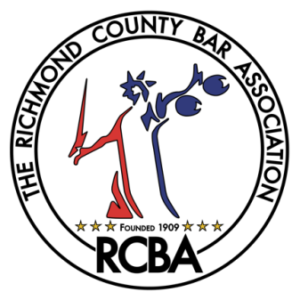The LAW FIRM of DAYREL SEWELL, PLLC is pleased to announce that Mr. Dayrel S. Sewell, Esq. and Mr. Lance Willoughby penned an article entitled, “Landlords and Loft space” that is now published in the Richmond County Bar Association’s Spring 2017 Journal.
The Richmond County Bar Association (“RCBA”) was founded in 1909 to provide access to legal services for the Richmond County community. RCBA is dedicated to advancing members’ professional development and promoting the highest standards of excellence in the practice of law. RCBA journal first published in the spring of 1984. The journal is published quarterly featuring legal articles, book reviews, product reviews or other items of interest to RCBA.

“Landlords and Loft Space” discusses the complexities of the “NYC Loft Law.” The article provides the legislative history and intent for the creation of NYC Loft Law. Also, the article discusses the negatives and positives for landlords and tenants under the NYC Loft Law. The NYC Loft Law is unique and ought to be understood by those who possess and/or plan to possess loft interest.
A willing, abiding landlord can legalize a building into residential loft spaces by taking the steps to receive a Certificate of Occupancy. See Legalization Process, http://www.nyc.gov/html/loft/html/legalization/legalization.shtml (last on visited Feb. 11, 2017). The landlord must file an alteration application with the Department of Buildings (“DOB”), obtain an approved alteration permit from the DOB, and then perform the described work in the permit as approved by DOB inspectors. Prior to the building improvements, landlords must go through a Narrative Statement Process (“NSP”). NSP is a planning process that involves the landlord, tenant, and Loft board so that any objections to the landlord’s legalization process can be heard. Tenants’ objections usually relate to unreasonably interference of the tenant’s enjoyment of the loft space during the landlord’s improvements. Alternately, Landlords can file an alternate plan during an NSP. Once the NPS is approved, the landlord can proceed with the improvement process. The loft board regulates the landlord’s deadlines as required by the alteration permit. Landlords can apply for deadline extensions if good faith efforts are proven and they reasonably could not comply with the law for reasons beyond its control. Failure to meet deadlines and apply for an extension will result in high fines against the landlord from the Loft Board.
This publication represents the continuation of our firm’s commitment to providing value to the greater NYC community and service excellence to our clients.
